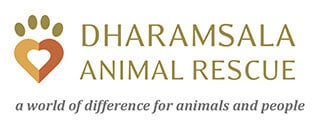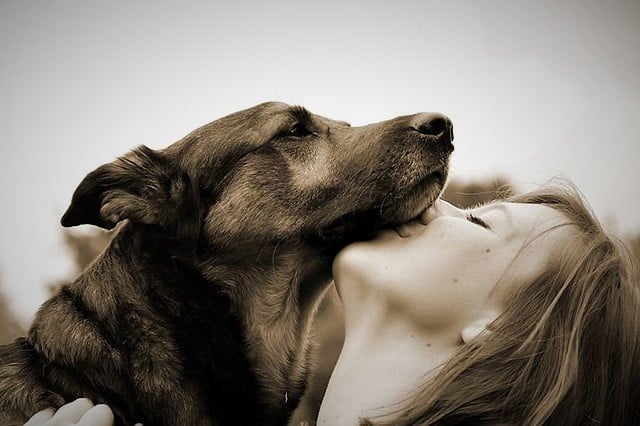‘You need something to help you through.’ These are the words of 22-year-old zookeeper Gabby Charlesworth who is recovering from a rare form of adrenal cancer. For Gabby, that ‘something’ is the animals in her care.
Gabby returned to work at Dursillas Park in East Sussex, UK, only three months after her surgery, the reason being that she just couldn’t be away from the animals. Sound a bit like Animal Assisted Therapy? Or is it more like Animal Assisted Activity? Or is it more personal than that? Perhaps Gabby is one of those people who loves her work environment and thrives around her workmates (particularly the camels). Whatever the reason, Gabby seems to be making a great recovery.
A couple of weeks ago we talked about Emotional Support Animals, and this topic really does cross over into the Animal Assisted Therapy/Activity arena. For people who love animals, the suffering of trauma or illness can be reduced simply by the presence of animals. Why is this? There must be something behind it because it doesn’t work the same way with other things. For example, someone who loves chocolate is not going to get any benefit from binging on it while recovering from a serious illness (this is a fact that needs no medical verification, and if you have experienced otherwise, I want to hear from you). So what is it about animals that soothes and destresses us and helps facilitate healing?
If you have never hugged a horse you are really missing out
Edward O. Wilson’s theory, which is a part of his greater biophilia hypothesis, suggests that humanity has always co-existed with animals and has relied on them for warning indicators of potential threats in co-inhabited areas. Basically, what this is implying is that we have an inbuilt response to how animals behave. If we are around a dog or a horse (or even a cat, though they can be a bit neurotic for no apparent reason) that is calm and peaceful, we are likely to innately feel more relaxed and calm ourselves.
Doesn’t make sense? Okay, compare it to this situation: You are trying to concentrate on something or convalesce from an illness and there is a dog going mental outside, barking and racing around in a state of agitation (in my village this usually means there are either monkeys practicing parkour on the powerlines or school children with stones around, but that’s another story). It is very hard to tune out the sound of a distressed or excited dog. It’s like when a baby cries―it’s just not something that the human brain is programmed to tune out. And we can tune out other things―skill-saws, hammering, traffic noise, aeroplanes landing nearby… but when animals aren’t happy, or have sensed some sort of danger (even if it is just the kids yelling insults at them on their way home from school), it is very hard not to get involved, at least emotionally.
Hanging with the herd: humans used to rely on animals for warnings and indicators of danger in the hood
So, with this in mind, we might be able to understand why having a duck on a plane with us might help to fight anxiety, or having a friendly dog come to visit us in hospital might help us to relax and therefore recover faster from illness or surgery. (Another fact that needs no medical verification: if you are in a calm and relaxed state of mind, you’re gonna get better faster.)
But is that all Animal Assisted Therapy is? A simple human response to calmness in animals that facilitates recovery through relaxation? I’m going to say: no. I like the theory, and I think there is probably a lot of truth in it (after all, so much of our response to our environment is based on historical collective memory or instinct), but there has to be more to it than that. Take Gabby as an example. She says it was ‘just hideous’ being away from the animals in her zoo. That’s got nothing to do with being calm or relaxed, and it also has nothing to do with recovering from cancer. It’s something else altogether, and here I’m going to wax a little bit ‘spiritual’, so just bear with me or go read another article if you’re not interested. (This one is really good: I wrote it myself).
‘I tolerate you because I am too lazy to hunt for food; consider that the reciprocation of your unfailing love for me.’
I’m just going to out and say it―it’s about compassion. It’s about the great sense of spiritual welfare that we get from treating others with kindness. When we are kind or generous or loving (especially when we are looking for nothing in return) we get this tremendous sense of welbeing, which is not physical and often not even mental. Have you ever helped a stranger in the street―given directions or physical assistance―and then felt irrationally good about it afterwards? Like, it was a good thing to do, sure, but why do I now feel like I’m walking on sunshine? Why am I smiling like I’m in love? It’s not a conceited feeling―’I’m so great, I just helped someone’―and it’s not selfish―’I helped that old lady cross the street cos I’m hoping she’ll leave me lots of money in her will.’ We feel good because being kind is a spiritual act and it leaves us feeling nourished and hale. Healing much? I reckon. Go ask Gabby and her animals. I bet she would agree.
Have you had a healing experience with animals? Do you think there is a spiritual element to Animal Assisted Therapy/Activity? We’d love to hear about it. Send us your story via the submissions page.
Words: Sharnon Mentor-King
Images: Rebecca Schönbrodt-Rühl, Alexas_Fotos, Sasint, Daga Roszkowska
Get our best articles straight to your inbox.
Subscribe to The DARling below:
About the author

Sharnon Mentor-King
Sharnon Mentor-King is a freelance writer and editor from New Zealand, currently living and writing in Dharamsala in northern India. When she’s not harping on about kindness, she also writes bad poetry and excellent young adult fantasy. She has been working on her first novel for nearly half her life, and has just finished it, but if her editor can get down to a readable page count, it will be a miracle. Let us pray.




